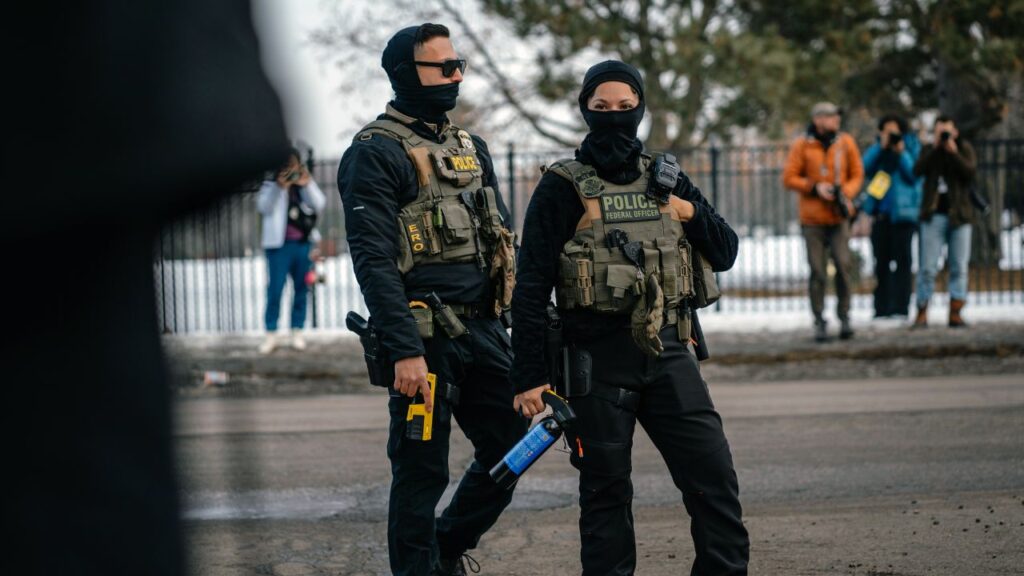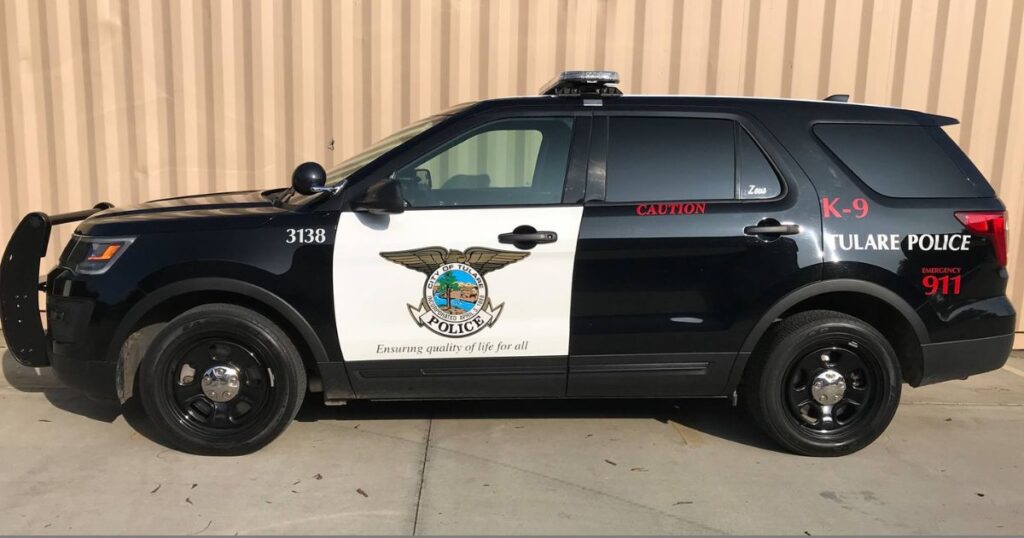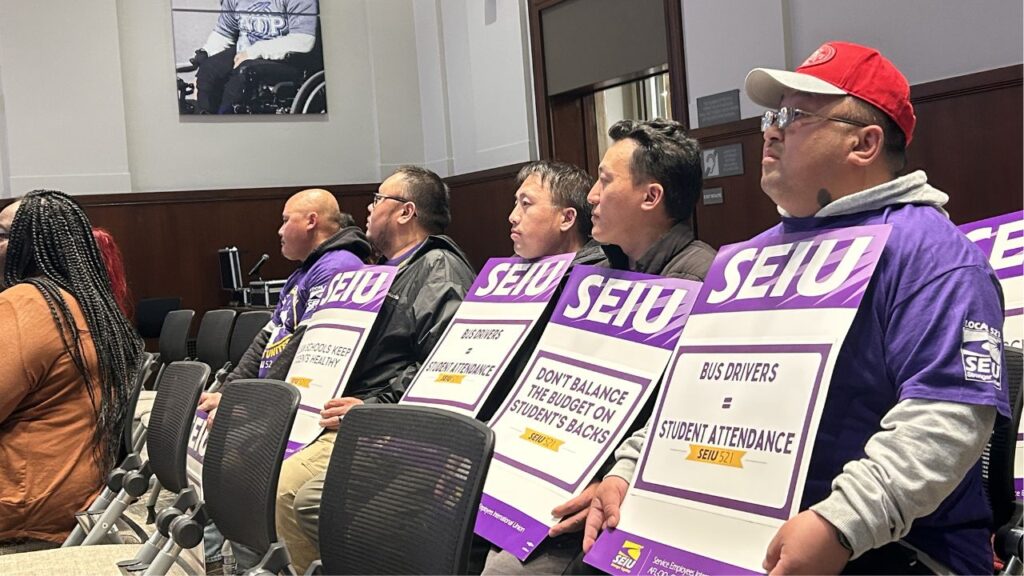Share
|
Getting your Trinity Audio player ready...
|
Fresno County Supervisors took action on Tuesday to put the revised Measure E before voters on the March 2024 ballot.
However, the board’s approval vote for the estimated $1.4 billion Fresno State tax initiative drew vocal opposition from such well-known conservative figures as Fresno City Councilmember Garry Bredefeld, businessman Brooke Ashjian, and Fresno County Assessor-Recorder Paul Dictos.

“It sets a terrible precedent and if it passes, it will ensure that the CSU System never feels … the need to meet its financial responsibility to Fresno State because they know the financial burden has been passed on to Fresno County residents.” — Fresno City Councilmember Garry Bredefeld
The Fresno County Clerk’s Office certified the Fresno Facility Academic Program Improvement Initiative Measure — now officially called Measure E. The ballot initiative adds a .25% sales tax to purchases within Fresno County. Organizers estimate that would generate $1.4 billion over 25 years to fund the construction of new academic buildings as well as significant upgrades for athletics facilities.
The money would also go to address an estimated $244.4 million of deferred maintenance throughout the campus, according to a Measure E factsheet.
“Two-thirds of the academic buildings on the campus are over 50 years old,” said Tim Orman, general consultant for the Measure E campaign. “The university has over $500 million in deferred maintenance. This may be a state liability…but the state has abdicated its responsibility for the past 50 years.
“Measure E is an attempt for the taxpayers to take control of their university with 100% local control of these funds to modernize and improve Fresno State and empower the most prominent economic and social engine we have in Fresno County.”
But detractors say Measure E shifts the burden of paying for the university’s needs to Fresno County taxpayers and away from the state Legislature.
Bredefeld said passing Measure E tells CSU chancellors that Fresno State taxpayers will pick up the tab.
“It sets a terrible precedent and if it passes, it will ensure that the CSU System never feels … the need to meet its financial responsibility to Fresno State because they know the financial burden has been passed on to Fresno County residents,” Bredefeld said.
20 Fewer Days to Gather Needed Signatures: Orman
Fresno County Clerk Registrar of Voters James Kus estimated that at least 24,000 of the 34,538 signatures in support of Measure E were valid. Petitioners needed 20,800 signatures to qualify.
When organizers petitioned for the original Measure E in 2022, it took 56 days to get the necessary signatures, said Orman. Nearly 53% of voters rejected the first Measure E.
This time around, it took a little more than 30 days, Orman said.
“That tells me what I’ve heard on the street talking to people that there is a much broader base of support for Measure E this time around,” Orman said. “I credit that to the education we did last year.”
Money will go to aging infrastructure and buildings at Fresno State. The Legislative Analyst’s Office said in a study the California State University system has no plan in place to address growing maintenance needs.
62% of Campus Buildings More Than 60 Years Old
Fresno State ranks No. 8 in the CSU system for poorest facility conditions, according to the LAO. Across the entire CSU system, the LAO estimates $3.1 billion will arise in capital renewal needs over the next 10 years, averaging $313 million annually. The LAO estimates $6.5 billion in total deferred maintenance in the system.
An internal document from Fresno State in March 2020 stated that 77% of buildings at Fresno State were more than 30 years old and 62% were more than 60 years old.
Meanwhile, Dictos said that responsible managers should provide for replacement reserves.
“Not providing for annual replacement reserves in an operation like (Fresno State) is reckless and totally unacceptable,” Dictos said. “Some in my profession might call it an accounting scandal.”
Fresno State freshman Jaden Baker came to the meeting with organizers to speak on the need for the measure.
“Between the water running brown, the air conditioning not working, beds breaking, dining food being burnt, and the only palatable thing being chicken nuggets at Fresno State, I believe it’s time for change,” Baker said.
When Faith Van Hoven toured Fresno State with her parents, she said the housing buildings were exactly the same as when her parents went there.
“What Measure E does is allow money to go into our community, allows support for our college, and we’ll see this directly impacting students,” Van Hoven said in the meeting. “With Measure E, we see that we have local control of our tax dollars, we see that we’ll have upgraded classrooms and technology.”
Measure Rife with ‘Crony Crapitalism’: Ashjian
Detractors of Measure E said the tax shifts what the CSU should be paying onto Fresno County taxpayers, whom they say are already overburdened.
“This is a shift of liability and responsibility from the state of California to fix their buildings to Fresno County taxpayers,” said Brooke Ashjian, a former Fresno Unified School District Board President and CEO at Seal Rite Paving.
Ashjian said taxpayers facing inflation shouldn’t have to bear additional taxes as the cost of food and necessities increase.
If approved, Measure E would create an oversight committee to approve taxpayer funds for Fresno State projects.
Opponents of Measure E said this creates too much possibility for corruption.
“This proposed tax measure put forth by the so-called ‘Friends of Fresno State, Measure E’ is nothing more than crony ‘crapitalism,’ ” Ashjian said. “They’re using the same tactics they did at Fresno Unified under the ‘fleece-fleeceback’ program, which finally goes to trial in five months after 12 years of litigation.”
Ashjian’s “fleece-fleeceback” comment referred to Fresno Unified School District’s lease-leaseback contract with Harris Construction to build Gaston Middle School. The California Supreme Court ruled the contract was illegal in April. Harris Construction’s Richard Spencer largely funded the original Measure E in 2022.
Five of the seven members from the oversight committee would be selected by the Fresno County Supervisors. The Fresno State president would pick one, as would the CSU chancellor.
Committee members could vote themselves a salary of up to $81,000 a year.
Orman said the salaries are a way to make sure the measure gets the best people for the oversight role.
However, Bredefeld said it creates too much opportunity for nepotism.
“That is outrageous and a prescription for friends of the well-connected and insiders to profit from this tax hike,” Bredefeld said.
Measure E Project List


















